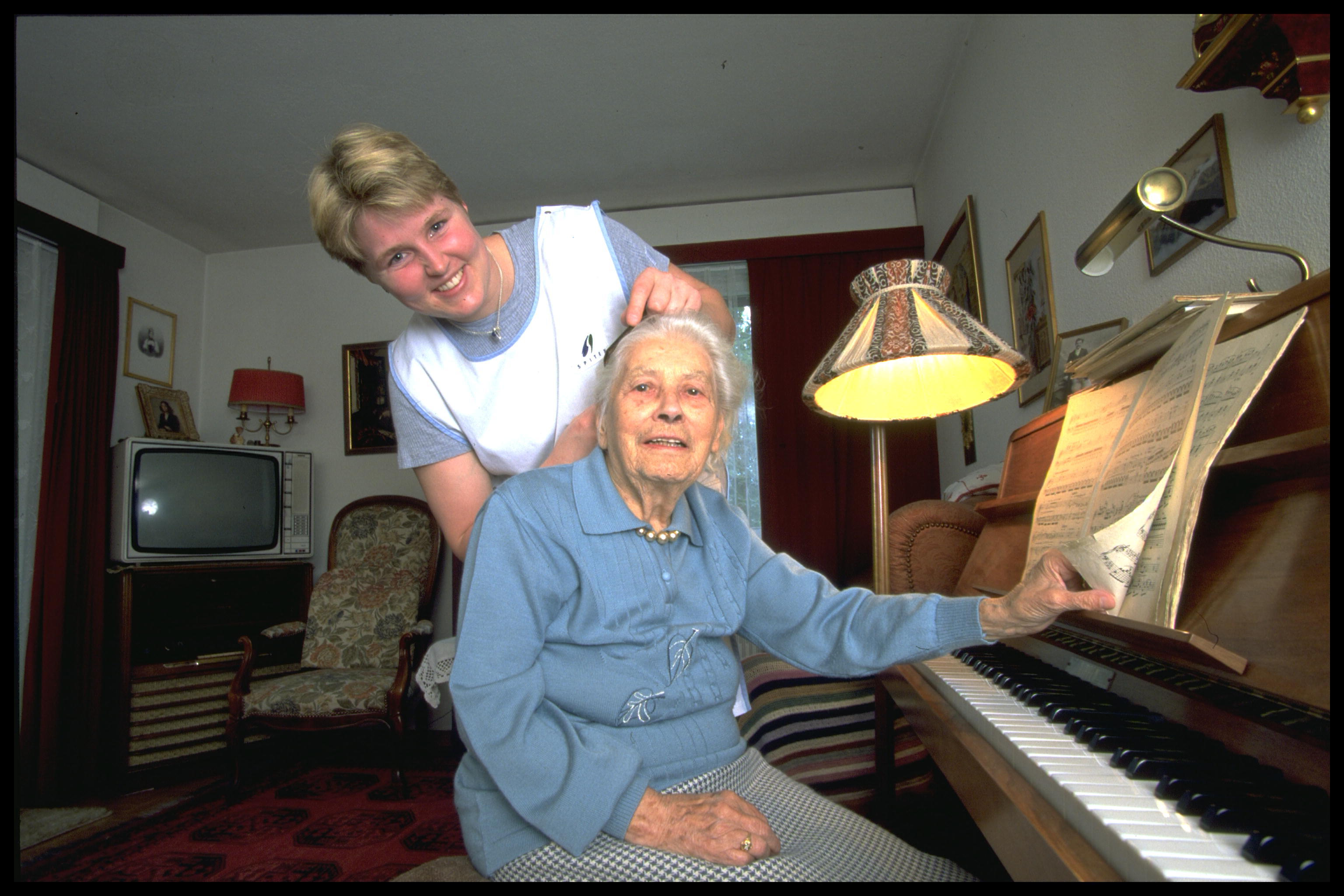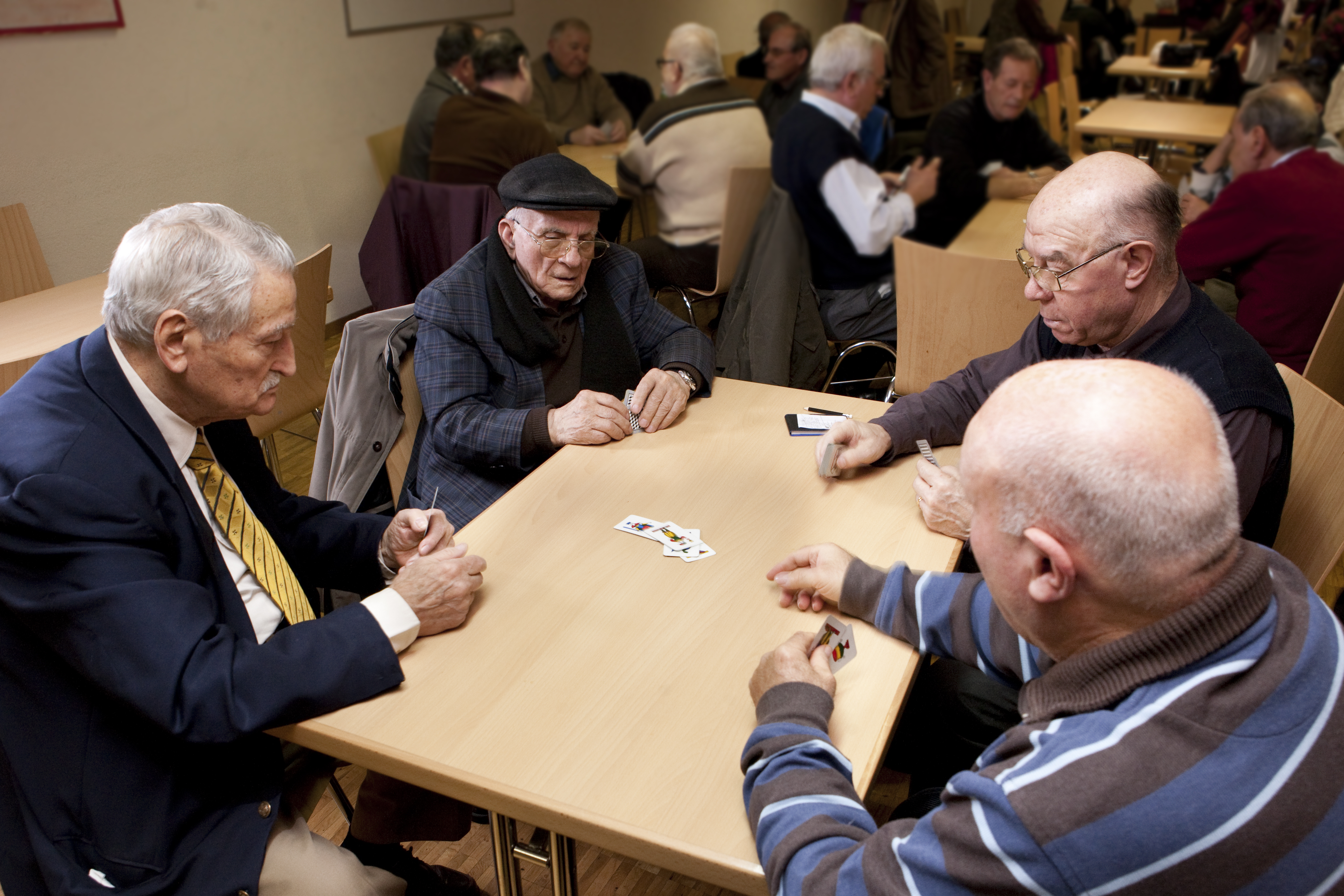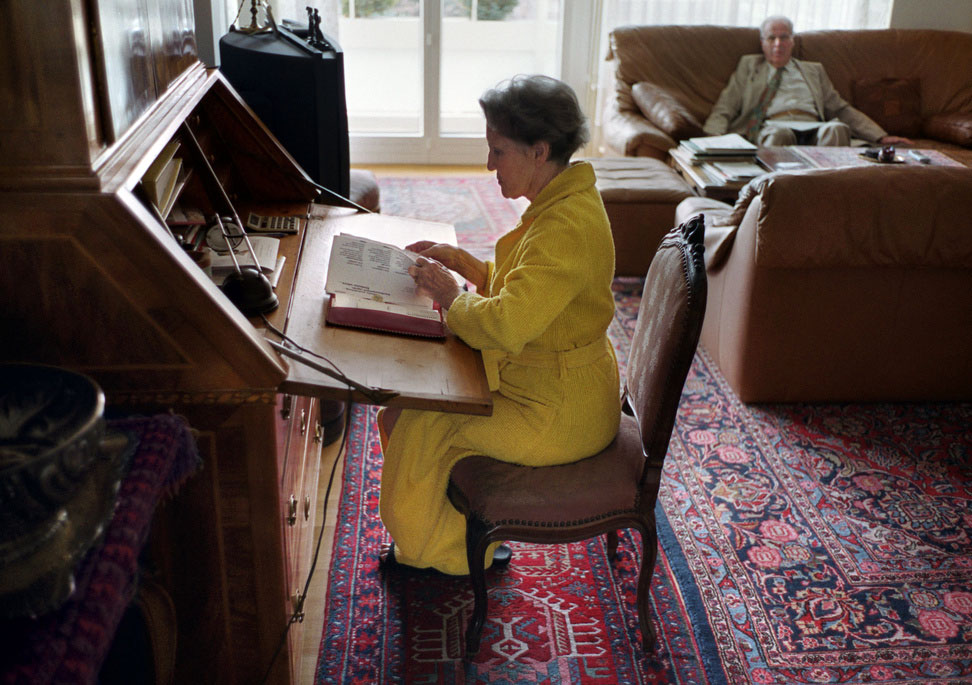East European carers look after aged Swiss

Switzerland’s population is ageing, creating a need for care workers to look after them. Many elderly people prefer to stay at home, but private care isn’t cheap.
The monthly rate for round-the-clock care can range from SFr10,000-30,000 ($10,950-32,800) – assuming that the workers are local. Enter workers from abroad, who are willing to do the work for a fraction of that price plus room and board.
Although there are no figures available, the number of foreign care workers on duty in Switzerland is expected to grow after May 1. That’s when eight eastern EU countries will be allowed to participate in the free movement of persons policy that lets EU citizens work permit-free throughout the EU and Switzerland.
“The Swiss aren’t poor, but not everyone can afford a private caregiver,” noted Bernhard Mascha, manager of the Swiss branch of Seniorhilfe, a Slovakian agency that places Slovakian and Hungarian care workers in Switzerland, Germany and Austria.
Seniorhilfe engages carers who help their clients with personal hygiene and also act as housekeepers, performing tasks like cooking and doing laundry. The monthly cost is about SFr 3,000, depending on the experience of the worker and the level of German spoken.
A family from near Interlaken that asked to be identified only as “Family G” are very satisfied with the services provided for their 91-year-old mother, who suffers from dementia. A pair of Seniorhilfe care workers take turns looking after the woman for a month at a time.
“Since August our mother has been in the best of hands. The collaboration with the caregivers and the organisation works perfectly. Our mother gets committed, sensitive and competent care for practically 24 hours a day,” according to the reference the family provided for Seniorhilfe.
Meeting needs
“There’s a market for this type of service – otherwise they wouldn’t come,” Spitex spokesman Andreas Keller pointed out to swissinfo.ch. Spitex is a Swiss non-profit organisation that provides in-home nursing services, like changing bandages and administering medicine.
Keller noted that it was becoming more common for Spitex employees to encounter live-in companions while visiting patients. These house calls are covered by health insurance, whereas full-time care is not.
In canton Ticino, two local Spitex branches have been looking into whether it would make sense for Spitex to collaborate with so-called “senio pairs” – a derivative of au pair.
One has taken on the role of employment agency, matching care workers with elderly people and ensuring that everybody’s needs are met properly. For example, it prepares work contracts similar to those typical for domestic staff in Switzerland. The set-up fee for this is SFr1,750 and the annual salary is set at about SFr39,000.
Language and culture
Yet one has to be very cautious when hiring a caregiver, keeping both nursing and language skills in mind.
“Patients with Alzheimer’s, for example, need round-the-clock care. For the care workers, these patients are quite demanding – even for Swiss people who can understand exactly what they’re saying. It has a lot to do with language and culture,” Keller said.
HausPflegeService, an agency based in canton Zurich, mainly engages care workers from Germany. Like Keller, manager Hanspeter Stettler agrees that language is very important.
“Cultural awareness is also a factor. We have an introductory week and continuing education sessions to teach our workers little things like the fact that salad dressing is different here in Switzerland – little things that are important to the elderly people,” Stettler told swissinfo.ch.
Unwelcome competition
Asked if he worried about competition from eastern Europe, Stettler said, “Not really. We have a care worker concept featuring people with a good professional level. Plus we’re fairly well known.”
Unlike Stettler, self-employed nurse Dagmar Michalina is dismayed by the influx of workers offering their services cheap. Michalina, who is based in Basel, told swissinfo.ch that she was against it for two reasons.
“First of all, these caregivers work for a pittance, which isn’t right. Secondly, I think these jobs should go to people who actually live in and pay taxes in Switzerland.”
Michalina pointed out that as a freelancer, it was especially difficult to ensure that she had enough work.
“The carers from eastern Europe work for a few months or a year – with a steady income and job security for that time. I get paid by the hour when my client needs me.
“If she dies today, then I’ll have no income tomorrow. And I’ve got a family to feed here in Switzerland, where the cost of living is high.”
Making a living
Renata is a Polish caregiver who has been working in Basel on and off for the past two years. In fact she is a dressmaker, but she was unable to make a living in Poland. When a colleague told her about the opportunity to work in Switzerland, she decided to give it a try.
In keeping with the current law, Renata comes for just three months at a time, but would welcome the chance to stay for longer stints. She works every day for SFr1,500 per month. She says it’s not as much as she would like to earn, but that she is one of the lucky ones.
“I work for a special family. The woman is very healthy, so I can go out in the evenings. And I never have to cook. But I know of others who don’t have any leisure time and get paid less,” Renata told swissinfo.ch.
The ageing of the Swiss population continues from year to year. On the one hand, the share of people 65 or older rose to 16.8% in 2009 and, on the other, the share of the population under age 20 continued to fall (from 21.2% to 21.0%).
In 1900, there were 76 young people (under age 20) and 10 people 65 or older for every 100 people of working age (ages 20–64). This ratio has changed significantly: in 2009, there were only 34 young people and 27 people 65 or older for every 100 of working age.
Thus, the old-age dependency ratio has almost tripled while the youth dependency ratio has halved. This link between generations is especially influenced by the ageing of the population; this trend is caused by falling birth rates coupled with a steadily increasing life expectancy.
As a result of the higher life expectancy, the number of elderly people is rising: in 2009, some 371,604 people were 80 or older, compared with 82,857 in 1960.
But the number of people under age 20 is decreasing: 1,636,125 in 2009 against 1,703,750 in 1960.
Source: Federal Statistics Office
More than 75% of elderly people in Swiss care homes have health problems, with almost two out of five suffering from dementia.
The Federal Statistics Office found that 67% had great difficulty in performing daily tasks such as eating and getting dressed. The results were part of a 2010 report on the state of health and living conditions of old people living in institutions.
It found that 77% had a health problem of more than six months’ duration, with 39% suffering from dementia and 26% from depression. Other health issues included heart and blood pressure problems, diabetes and rheumatism. The average age of those surveyed was 83 years old.
The report also found that care home residents had fairly regular calls or visits from friends and family. Some 55% were visited at least once a week, with 12% having daily visits. Only 2% had no contact with the outside world at all.
Source: Federal Statistics Office

In compliance with the JTI standards
More: SWI swissinfo.ch certified by the Journalism Trust Initiative






You can find an overview of ongoing debates with our journalists here. Please join us!
If you want to start a conversation about a topic raised in this article or want to report factual errors, email us at english@swissinfo.ch.